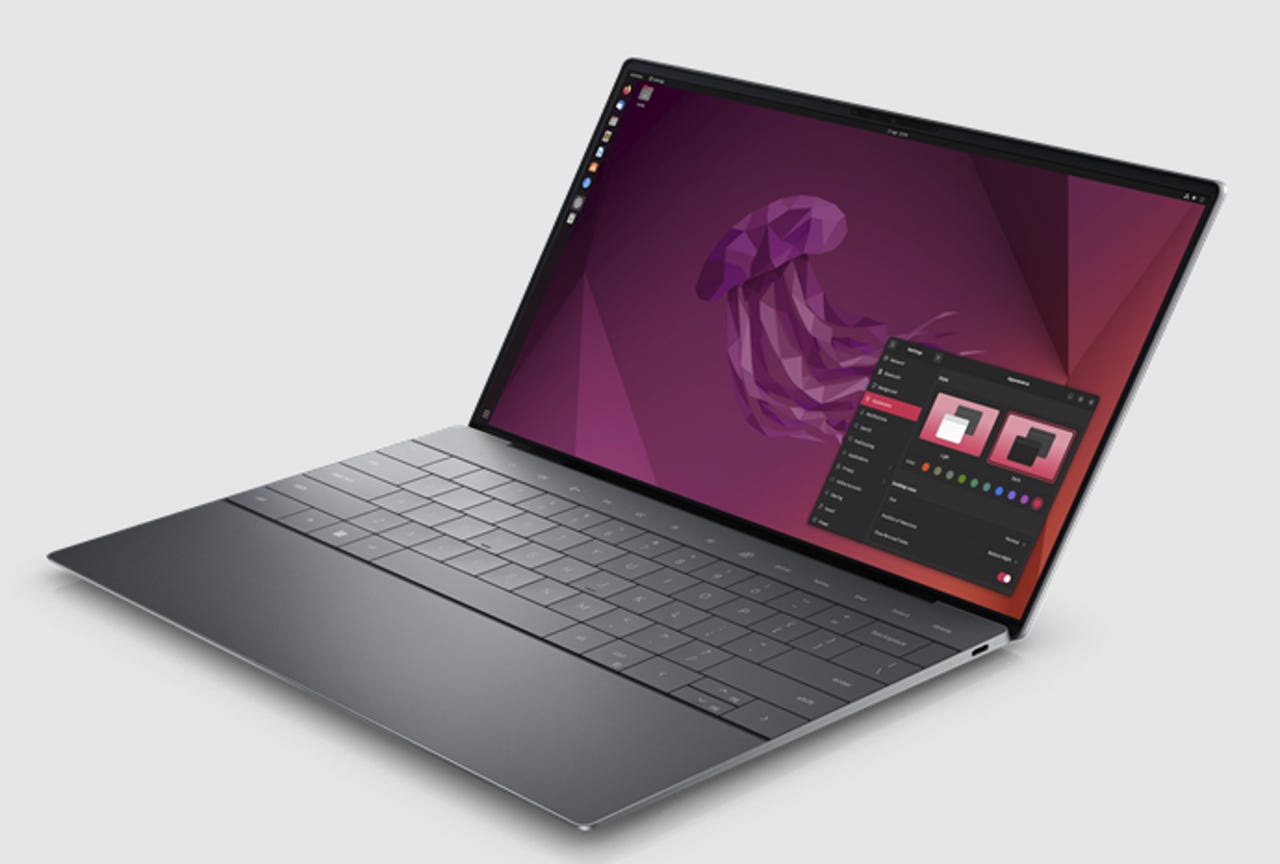
Dell Unveils Innovative Concept Luna: Disassembling Like LEGO Bricks - A Glimpse Into Tomorrow’s Computing

How Canonical’s Secret Agenda Gave Rise to Ubuntu in Elite Dell Laptops: Decoding ‘Project Sputnik’ | A Deep-Dive Report

Dell
RALEIGH, NC – Today, the Dell XPS-13 with Ubuntu Linux is easily the most well-known Linux laptop. Many users, especially developers – including Linus Torvalds – love it. As Torvalds recently said, “Normally, I wouldn’t name names, but I’m making an exception for the XPS 13 just because I liked it so much that I also ended up buying one for my daughter when she went off to college.”
So, how did Dell – best known for good-quality, mass-produced PCs -- end up building top-of-the-line Ubuntu Linux laptops? Well, Barton George, Dell Technologies’ Developer Community manager, shared the “Project Sputnik” story this week in a presentation at the popular Linux and open-source community show, All Things Open .
Also: The best Linux laptops (and why you might want one)
First, however, you should know that Dell has supported Linux desktops and laptops since the middle 2000s. In 2006, Michael Dell told me that Dell would be the first major PC vendor to release and support desktop Linux -- and this proved to be a success.
George explained that Dell had always done great volume with these computers. Not volume, like the Windows machines, of course, but enough that Dell has always offered Linux-based – primarily Red Hat Enterprise Linux (RHEL) powered – workstations.
Newsletters
ZDNET Innovation Weekly
ZDNET Innovation brings you the week in future-forward technology from around the world.
Subscribe
Still, none of these machines really appealed to developers. George explained:
“Back in 2011, a group of us were trying to figure out how Dell could become more relevant to developers. Dell wasn’t a big thing in developers’ minds, and we decided it would be a good idea to get developers to change their minds and to think of Dell as a company they wanted to work with.”
This notion had been sparked by a conversation between Dell and Stephen O’Grady, co-founder of the developer-centric analyst firm RedMonk . Barton recalled O’Grady suggesting it would be great for developers “if you took one of your laptops, put Ubuntu on it, and just got it to work. We said that’s an awesome idea, but it’ll never happen, because we’re talking about Dell. Our laptops need to deliver huge volumes and revenue. When I talked to one of our higher-ups about the volumes that we thought we would sell, he said, ‘Yeah, that’s what we sell in Belgium on Tuesday, between three and four in the afternoon.’”
Despite this disheartening evaluation, when Dell started an in-house innovation fund, Barton pitched it again. This time, he was granted $40,000 to pursue the idea. “This was enough to get going,” George recalled. “So, first thing, we put together an official team. But none of us were full-time on this. We got approval from their managers to work on this officially, but it was sort of in our spare time.” At times, George said, “The project staff was two people and a dog.”
Also: The best Linux distros for beginners
George approached Google and Amazon: “‘Here’s what we’re trying to do,’ he related his pitch. ‘Does this look like something you’d be interested in?’ And so while they didn’t place an order there for 10,000 units, they didn’t laugh me out of the room, either.” It was enough to prove there was a business case for a developer-focused Ubuntu Linux laptop.
During that same period, George announced on his personal blog what Dell was planning, and his traffic went from 60 views a day to 15,000. Then, as now, there’s a lot of interest in laptops that come with Linux ready to go.
After all that, the team wanted to ensure they did it right. This wouldn’t just be a case of dumping a distro on a machine and hoping for the best. You can do that today and have an excellent chance of everything working perfectly. In 2013? Not so much.
George added, “We created a rough image that people could use on the XPS 13. Developers could download it and start working on it. We told people there were a lot of caveats, and it wasn’t an official release nor supported. But the key thing here is while you couldn’t do this with consumers, with developers – who knew it was a beta– then you’re okay. And, we had most of the bugs worked out. The biggest one was the touchpad, which somebody described as ‘craptastic’.”
Also: Linux might be your best bet for heightening your desktop computer security
So, Dell got together with Canonical , Ubuntu Linux’s parent company, to make sure all the drivers were in place for a top-notch Ubuntu Linux developer desktop experience. Indeed, the name ‘Project Sputnik’ is a nod to Mark Shuttleworth, Ubuntu founder and Canonical CEO. A decade before the project itself, Shuttleworth had spent eight days orbiting the Earth in a Soviet Soyuz spacecraft. George and the crew decided “Soyuz” didn’t have an inspiring ring to it, so the company went with “Sputnik” instead.
George continued:
“We announced a beta program for the machine with a 10% off offer. We thought, well, we’ll probably get 300 people. Instead, we got 6,000. This is where senior management said OK, you’ve got something real. We went from slides to launch in nine months. That’s pretty fast for building a system.”
Now, more than a decade later, the Dell XPS 13 line and other other Ubuntu-Linux-powered systems are more popular than ever. From a skunkworks project, George and company created a Linux hardware mainstay for both developers and power users.
Linux
The best Linux laptops for consumers and developers
Want to save your aging computer? Try these 5 Linux distributions
The best distros for beginners
How to enable Linux on your Chromebook (and why you should)
- The best Linux laptops for consumers and developers
- Want to save your aging computer? Try these 5 Linux distributions
- The best distros for beginners
- How to enable Linux on your Chromebook (and why you should)
Also read:
- [New] Essential Info on Valheim Sowing Top Seeds Ranked
- [New] Streamlined Image Enhancement Software
- Achieve Optimal Performance: Update Your MBox 2 Drivers on Windows [FULL GUIDE]
- Complete Guide to Updating Your Oculus Headset - Driver Downloads for All Windows Systems (11/10/8/7)
- Complete Tutorial to Access and Listen to Local Stations via Smartphone Radio
- Employing Alternative Antibiotics Such as Clindamycin or Penicillins, Which May Still Have Activity Against Metronidazole-Resistant Clostridium Perfringens Strains
- Expert Tips and Reviews From Tom’s Comprehensive Hardware Analysis
- FT232R USB UART Driver Download Easily & Quickly
- How to Resolve 'Mso.dll' File Not Detected Issues on Your PC
- Is Fake GPS Location Spoofer a Good Choice On Oppo F23 5G? | Dr.fone
- Keep Your Netgear A6100 Running Smoothly with Updated Windows Drivers
- Mastering Languages: Timeline for Fluency
- Overcome Family Sharing Hurdles with These Six Effective Strategies
- Three Ways to Sim Unlock Tecno Camon 30 Pro 5G
- Updated HP PageWide Pro 477DW Driver Pack for Windows: Install Directly on Win11, Win10 & Win8
- Title: Dell Unveils Innovative Concept Luna: Disassembling Like LEGO Bricks - A Glimpse Into Tomorrow’s Computing
- Author: Richard
- Created at : 2025-02-27 19:10:30
- Updated at : 2025-03-04 22:49:37
- Link: https://hardware-updates.techidaily.com/dell-unveils-innovative-concept-luna-disassembling-like-lego-bricks-a-glimpse-into-tomorrows-computing/
- License: This work is licensed under CC BY-NC-SA 4.0.